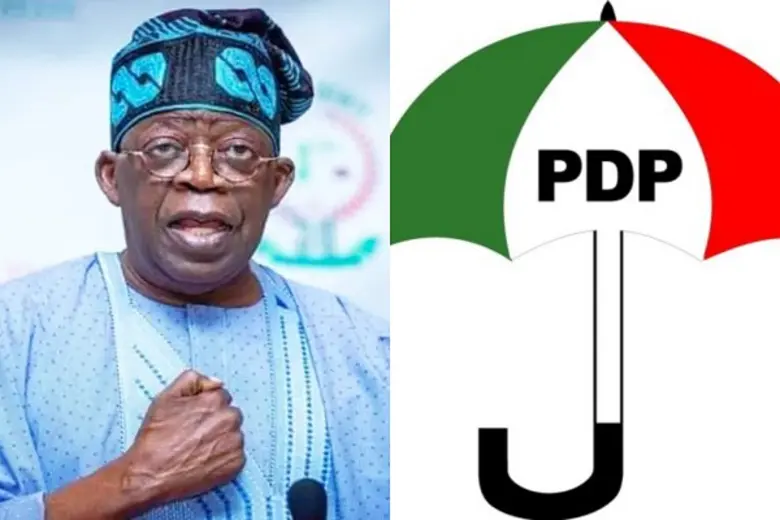In an unexpected political move, Nigeria’s Peoples Democratic Party (PDP) in Ogun State has declared support for President Bola Tinubu’s potential re-election bid in 2027, despite him representing the rival All Progressives Congress (APC). The announcement, rooted in regional solidarity, signals a rare alignment across party lines in the lead-up to the next general elections.
Abayomi Tella, chairman of the PDP’s Ogun State chapter, announced the stance on Monday during the campaign launch of Bolarinwa Oluwole, the party’s candidate for the Remo Federal Constituency in Nigeria’s House of Representatives. The constituency’s seat became vacant after the death of incumbent lawmaker Adewunmi Oriyomi Onanuga in January.
Speaking at the event hosted at the palace of the Akarigbo of Remo, a traditional leader in Sagamu, Tella framed the decision as a matter of regional loyalty. “President Tinubu is our son from the South-West. Though he belongs to the opposition, we will stand by him and give him our votes,” he said, emphasizing that the broader South-West region would rally behind Tinubu. He stressed that the endorsement hinged on ensuring “fair and just” electoral processes.
The PDP’s 2023 gubernatorial candidate in Ogun, Ladi Adebutu, echoed Tella’s sentiment, clarifying that the party’s criticism centered on state-level governance rather than Tinubu’s leadership. “Our grievance is not with the president but with poor governance in Ogun,” Adebutu said, recounting a January meeting with Tinubu where he conveyed the party’s position. He framed the PDP’s political efforts as a push to hold local leaders accountable.
The declarations highlight the complex dynamics of Nigerian politics, where regional affiliations occasionally override party lines. Tinubu, a former Lagos State governor, has longstanding ties to the South-West, a factor the PDP appears to leverage to consolidate support. However, the party’s backing comes with implicit conditions, notably transparency in elections and improved governance in Ogun, currently governed by the APC’s Dapo Abiodun.
Analysts note that such cross-party alliances, while uncommon, reflect strategic calculations ahead of 2027. The PDP, which lost the presidency in 2023, may seek to strengthen its influence by aligning with popular regional figures, even as it contests state-level seats. Meanwhile, Tinubu’s camp could benefit from unified South-West support amid nationwide economic challenges and security concerns.
The event also underscored the PDP’s focus on reclaiming the Remo Constituency seat, with Oluwole positioned as a successor to Onanuga, whose death earlier this year prompted the upcoming by-election. The party’s dual emphasis on federal alliances and local accountability illustrates the balancing act required to navigate Nigeria’s multifaceted political landscape.
As the 2027 elections draw closer, the PDP’s stance in Ogun may test the durability of Nigeria’s party loyalties—and redefine competition in a region pivotal to national politics.
